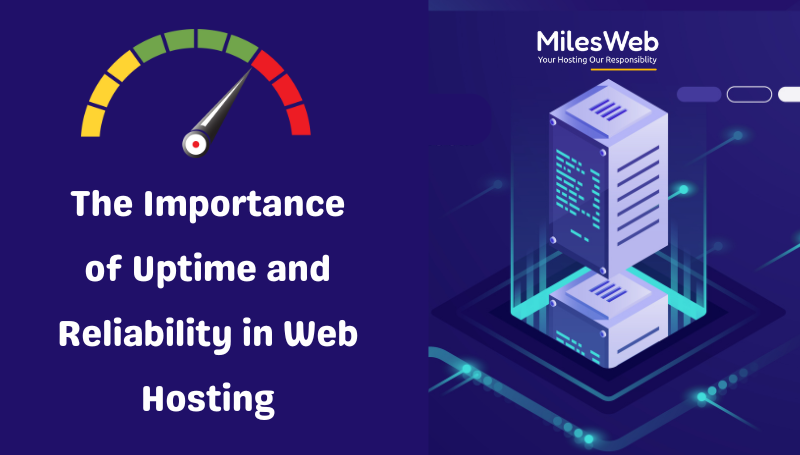Web hosting services are the best option to build an online presence. By having an online presence, you can easily build brand credibility and reach a mass target audience. In web hosting operations, uptime and reliability are two major factors that determine the efficiency of servers. If you also buy web hosting services, look for the uptime and reliability factor which helps in boosting the website’s efficiency.
No matter whether a shared web hosting server or Nodejs hosting server you buy, uptime and reliability ensure there are no hassles in the operations. In this blog, we will discuss how uptime and reliability are crucial in web hosting operations.
What is Uptime?
Uptime refers to the amount of time that a website is operational and accessible to users. It is typically measured as a percentage, with 100% uptime being the goal for most businesses. For example, if a web host guarantees 99.9% uptime, it means your site could potentially experience 0.1% downtime within a given period equating to around 43 minutes a month.
However, this fraction of time has a considerable impact on businesses. For instance, if an eCommerce website goes down during a sale or a major traffic spike, the potential losses could be significant, both in revenue and customer trust. The difference between a hosting provider that offers 99.5% uptime and one that guarantees 99.9% uptime might seem small, but in reality, it can translate to a noticeable difference in user experience.
What Is Reliability?
Reliability in web hosting encompasses more than just uptime. It covers the overall performance and dependability of the service. A reliable web hosting ensures not only your website is live, but also it performs optimally even during high traffic. This involves load balancing, server redundancy, and solid infrastructure that can withstand unexpected spikes in user activity.
Customers seek nothing else but quick and error-free service from your site when they visit. Slow loading times or constant outages make customers feel uncertain about your brand and this poor experience can be a reason they start to turn around. The experts have found that 40 percent of consumers give up a website that takes more than 3 seconds to load.
The Impact of Downtime on Business
Downtime is costly. When your website is down, customers cannot access your services, which directly impacts sales and leads. Consider an online store that generates $1,000 in revenue per hour. If the website is down for one hour due to hosting issues, that’s $1,000 lost not to mention the long-term effects of dissatisfied customers or lost opportunities.
For businesses that need to provide services, the time during which they are not operative may factor in damaging the company’s reputation for integrity. Customers may begin to harbor disbelief in the usefulness of a product that is published by a firm faced with frequent website blackouts, this troubling thought should get away. This loss of confidence cannot be easily repaired.
Furthermore, downtime not only has consequences in sales but also has a negative impact on the SEO (Search Engine Optimization) of your website. The search engines such as Google take an interest in the sites that are available to users regularly and that perform better. The long or frequent outages may produce low search rankings, in turn, making it more challenging for you to be located.
The Future of Uptime and Reliability in Web Hosting
With vast improvements in the use of the internet in business, the need for better uptime and hosting services will still rise. For instance, cloud hosting is now being opted for by so many people since it involves the use of multiple servers that make most of the data accessible even at the worst of times. As technology improves, so do the hosting providers’ infrastructures, and the guarantees and reliability of services also follow.
However, businesses need to be careful while selecting the right hosting provider, occasionally comparing results with the expected percentage of uptime to be delivered.
Conclusion
In the world of battling over attention and capturing users’ attention in the fully mature digital ecosystem, it is impossible to overestimate the importance of the availability of the site and the corresponding web hosting services. Downtimes are also bad for sales and customer trust, but also for SEO and the overall branding of your social media accounts. Selecting a hosting provider who has a reliable history of server uptime means your site is running and functioning at peak status all the time.
Looking at the long-term prospects, focusing on the availability and stability features of web hosting is a contribution to your company’s success. Indeed, any website that is to be up and running and which is to effectively work for the owners must be successful.

